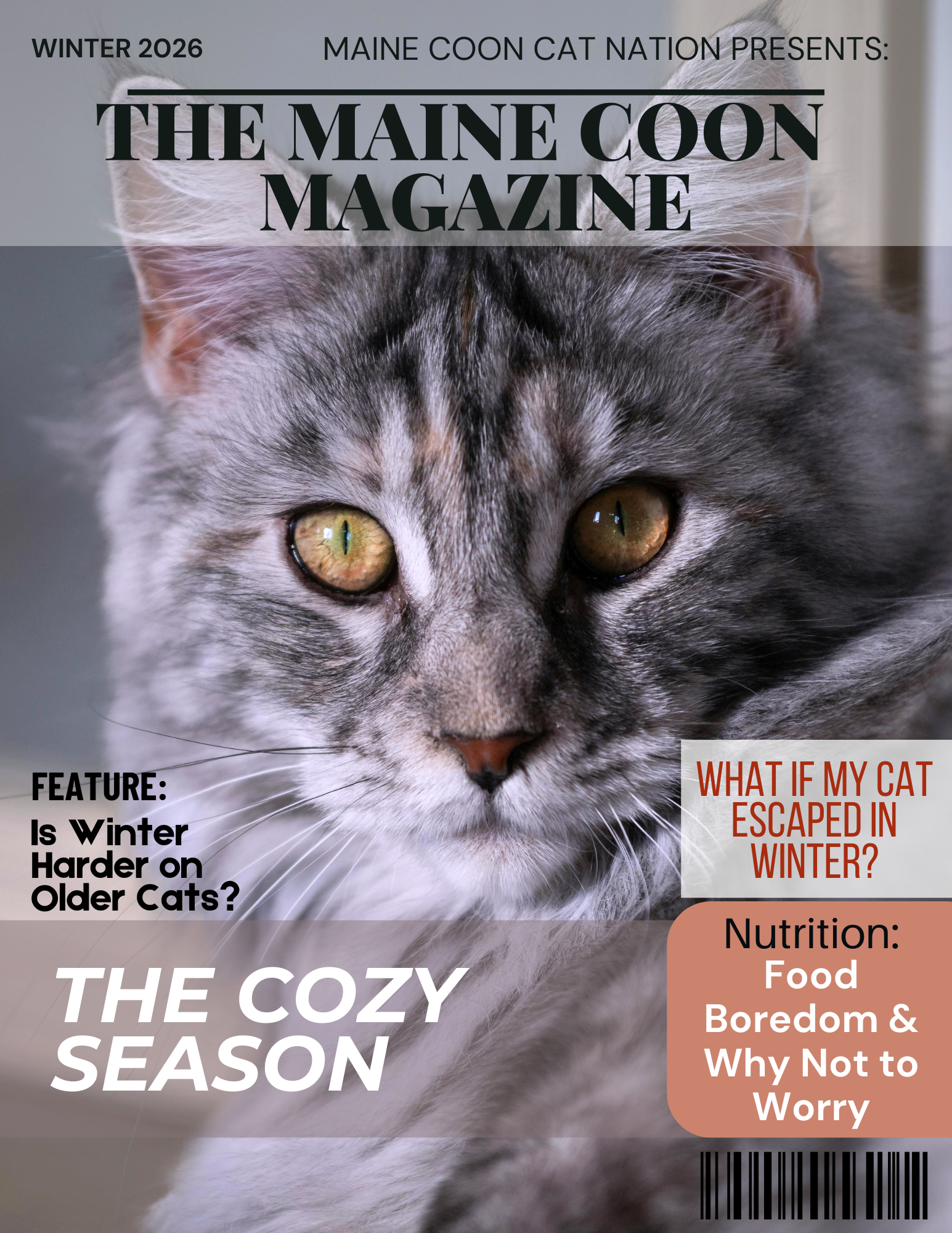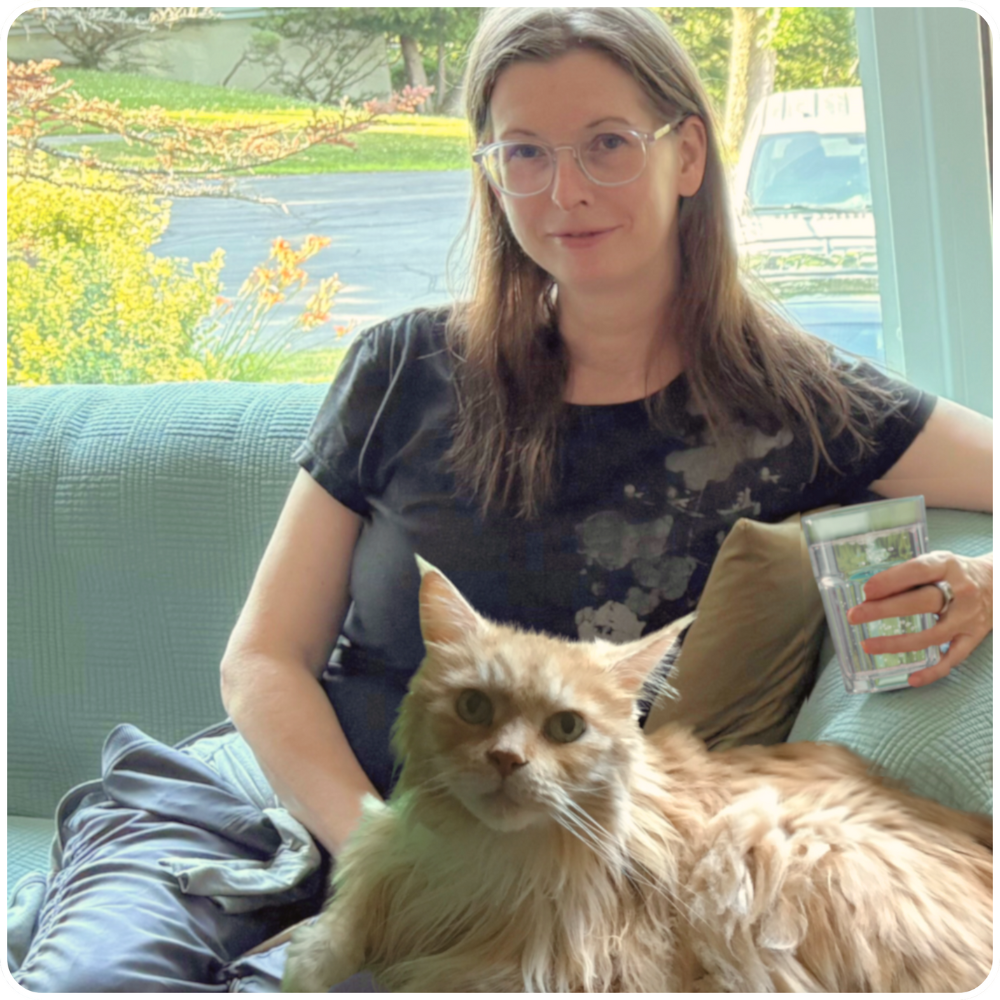- Home
- Maine Coon Care
- Do Cats Get SAD (Seasonal Affective Disorder)?
Do Cats Get Seasonal Depression?
Can They Get The Winter Blues?
Do cats get seasonal depression? Many pet owners notice changes in their feline’s behavior when the days grow shorter.
Just like humans, animals can be affected by shifts in daylight and routine.
While cats don’t experience SAD (Seasonal Affective Disorder) in the same way people do, they can show signs of low energy, increased sleep, and reduced interest in play during darker months.
For Maine Coons, who often live exclusively indoors, winter can mean fewer sunbathing spots, less activity, and a disrupted sense of time.
If you like this, you'll love our fun, free Daily Digest!

With long nights and less stimulation, some may become lethargic or less social.
While this isn’t true depression in the clinical sense, their mood and behavior can certainly be influenced by seasonal changes.
Recognizing these shifts is the first step in keeping them engaged and content year-round.
What is Seasonal Depression?
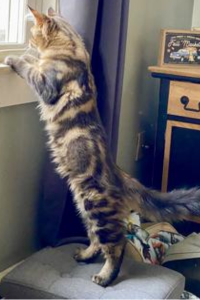 Falkor looking outside
Falkor looking outsideSAD (Seasonal Affective Disorder) is a well-documented condition in humans, linked to reduced sunlight exposure and shifts in melatonin and serotonin levels.
While research on its effects in animals is limited, many species - including household pets - respond to seasonal light changes.
Unlike people, cats don’t experience mood disorders in a psychological sense, but their biology still reacts to changing light patterns.
Less daylight can alter their sleep-wake cycles and activity levels. Outdoor animals naturally adjust by modifying their routines, but indoor pets, especially those in artificial lighting, might become more sedentary or disengaged.
Since Maine Coons thrive on interaction and mental stimulation, a lack of natural light and wintertime boredom can contribute to noticeable behavioral shifts.
Keeping a close eye on their habits can help determine whether they need a little extra enrichment during colder months.
Can Cats Experience Seasonal Changes in Mood?
Do cats get seasonal depression? While they don’t suffer from clinical depression, seasonal shifts can still affect their mood and behavior.
Shorter days mean less sunlight, which can disrupt natural rhythms. Some become less active, sleep more, or show less interest in play.
Others might seek more warmth and comfort, curling up in their favorite spots for longer stretches.
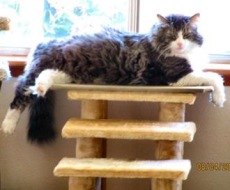 Bubba, lounging in a windowsill
Bubba, lounging in a windowsillIndoor cats rely on their environment for stimulation. In winter, fewer sunbeams to lounge in and less activity outside the window can lead to boredom.
Maine Coons, known for their social and playful nature, may be more prone to these seasonal changes.
A cat that normally follows you around might spend more time tucked away. A playful hunter might lose interest in toys.
Appetite changes are also common. Some eat more as temperatures drop, a natural response to seasonal shifts.
Others may graze less if they’re sleeping more. These changes don’t always signal a problem, but they’re worth noticing.
While most adjust just fine, seasonal mood shifts can be more noticeable in highly interactive breeds.
Paying attention to energy levels, engagement, and eating habits helps determine if your cat could use a little extra encouragement during the darker months.
Signs Your Maine Coon Might Be Feeling Down
Do cats get seasonal depression? While they don’t experience it the way humans do, seasonal changes can affect their behavior.
Cats are indeed sensitive to changes in their environment, which can lead to various behavioral alterations.
A study published in the Journal of Feline Medicine and Surgery highlights that domestic cats exposed to stressful stimuli may exhibit negative welfare effects and behavioral changes. [1]
These stressors can include alterations in their surroundings, such as moving to a new home, changes in routine, or the introduction of new household members.
Recognizing and minimizing environmental stressors is crucial for maintaining feline well-being.
A shift in daylight hours can influence energy levels, appetite, and activity. [2]
Some may sleep more than usual, beyond their normal 12–16 hours a day. They might seem less interested in toys or interactive play. A normally social cat may retreat to quiet areas more often.
Some eat more in colder months, while others pick at their food less. Any sudden or extreme changes in appetite, however, should always be checked by a vet.
Lethargy, lack of interest, or clinginess could all indicate boredom or seasonal mood shifts.
If your cat seems withdrawn or less engaged, it may need extra stimulation. While Maine Coons tend to be active and playful, even they can feel the effects of long, dark days.
Keeping an eye on small changes can help you support their well-being through the winter months.
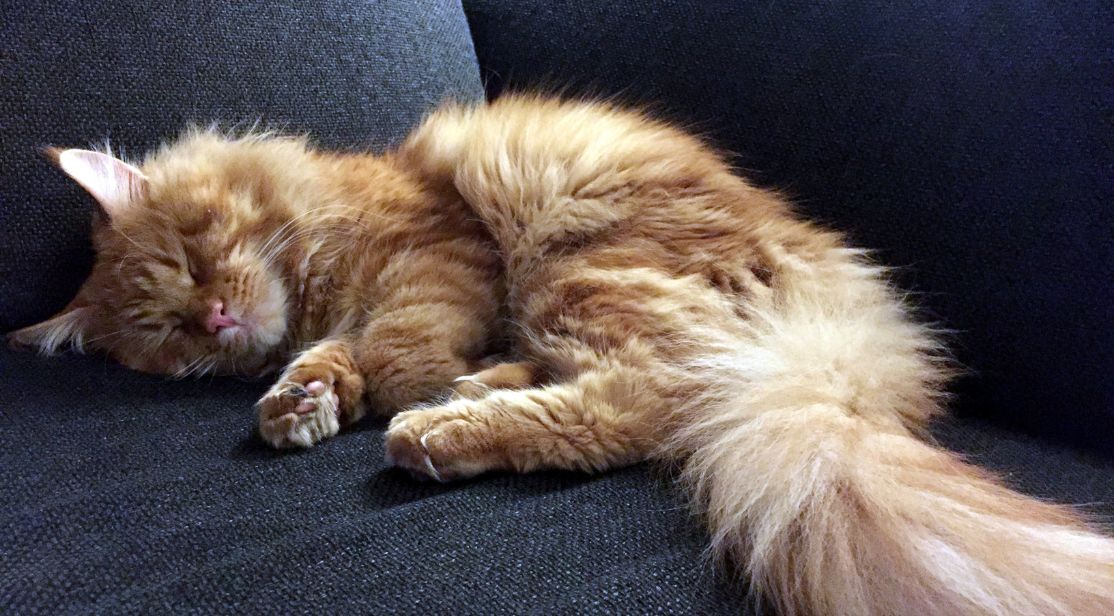
Helping Your Maine Coon Stay Happy Year-Round
While they may not experience it like humans, seasonal changes can affect their mood and activity.
If your cat seems less playful or more withdrawn, simple adjustments can help.
Natural light plays a big role in regulating energy levels. Open curtains during the day and provide cozy spots near windows.
If your home lacks natural sunlight, full-spectrum lamps can mimic daylight. Playtime is another important factor. Daily interactive sessions with wand toys or puzzle feeders keep their minds engaged.
A consistent routine also helps. Feeding, play, and cuddle times should stay predictable.
This stability reduces stress and gives your cat something to look forward to. If your Maine Coon enjoys watching the outside world, a bird feeder near a window can provide entertainment.
For some cats, extra affection and one-on-one time make a difference. Others may prefer new toys or cat trees to explore.
If your cat shows extreme changes in behavior, appetite, or energy, consult a veterinarian.
Underlying health issues can sometimes mimic mood shifts. Small changes can brighten your cat’s winter days and keep them feeling their best.
Do Cats Get Seasonal Depression? All in All...
Seasonal changes can affect your cat’s mood, but with a little effort, you can keep them happy and engaged!
Simple things like extra playtime, cozy sunbathing spots, and a steady routine make a big difference. Paying attention to their needs helps them adjust to the darker months.
The short, dark days of winter won’t last forever. Before we know it, spring will bring longer daylight, fresh air, and more sunny windows to enjoy.
Until then, a little extra love and care will keep your Maine Coon feeling their best all season long!
Top of Do Cats Get Seasonal Depression?
« Back to Maine Coon Cat Care
References:
[1] Amat M, Camps T, Manteca X. Stress in owned cats: behavioural changes and welfare implications. Journal of Feline Medicine and Surgery. 2016;18(8):577-586. doi:10.1177/1098612X15590867
[2] Workman JL, Nelson RJ. Potential animal models of seasonal affective disorder. Neurosci Biobehav Rev. 2011 Jan;35(3):669-79. doi: 10.1016/j.neubiorev.2010.08.005. Epub 2010 Aug 26. PMID: 20800614.
